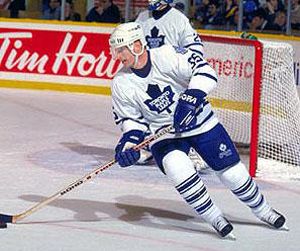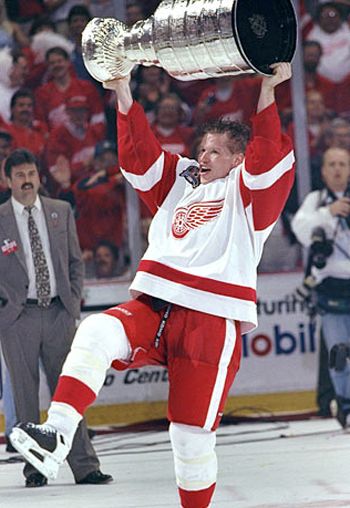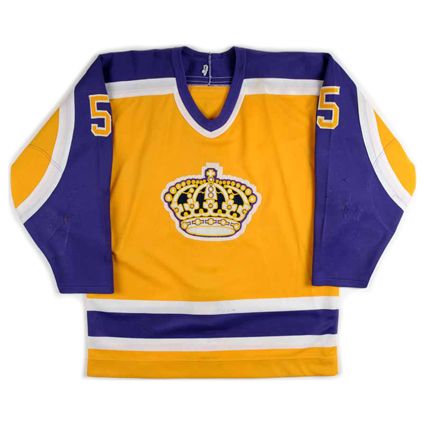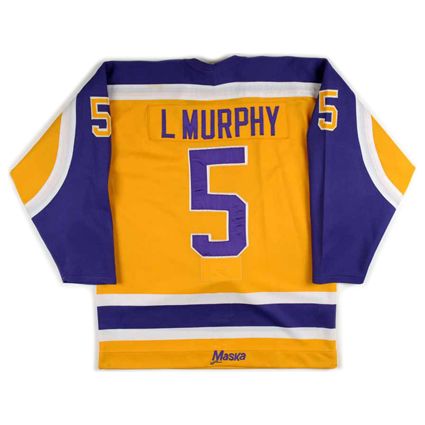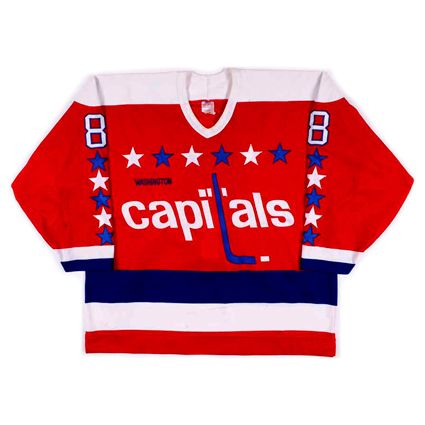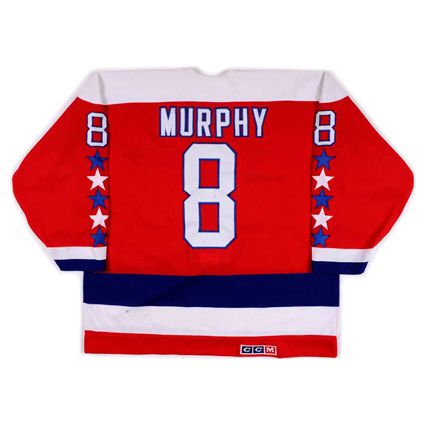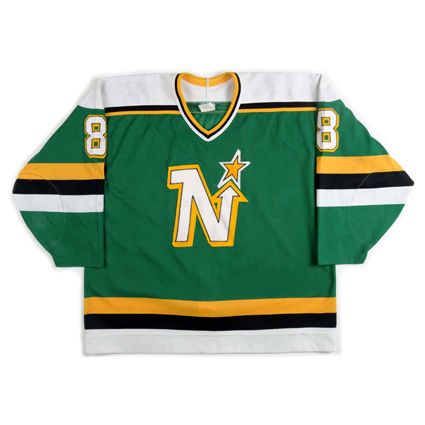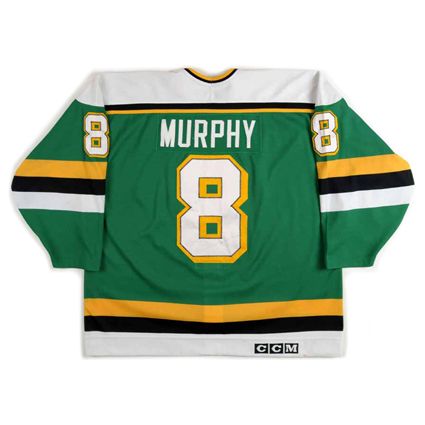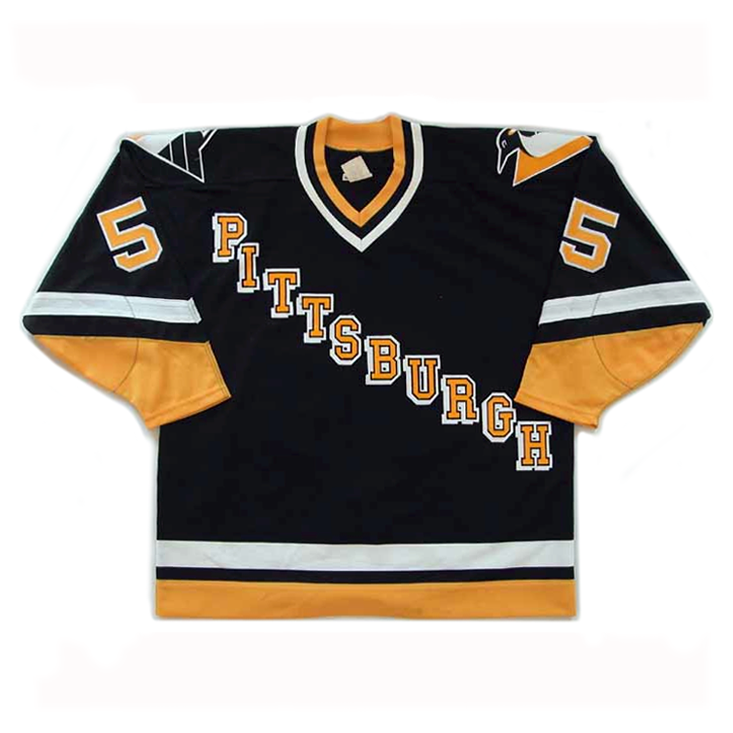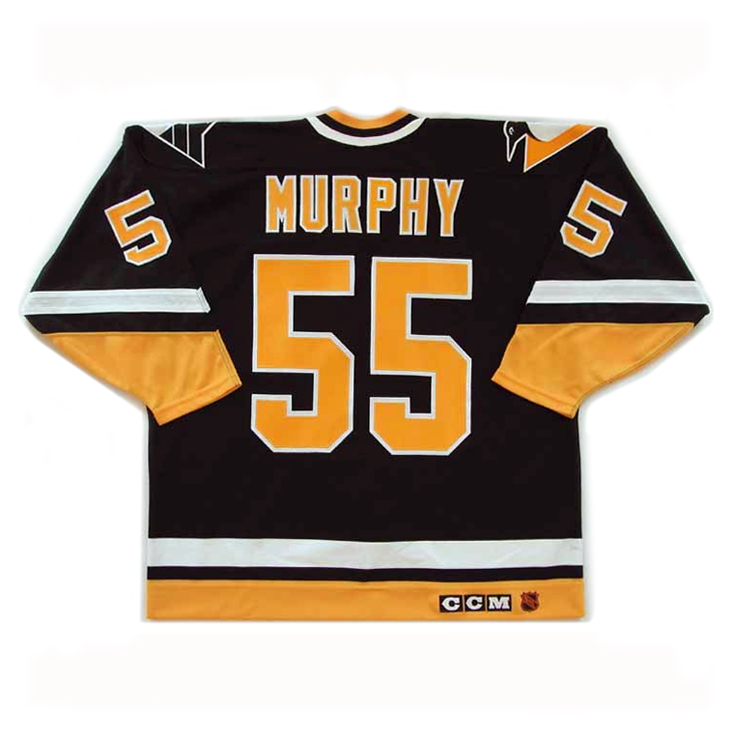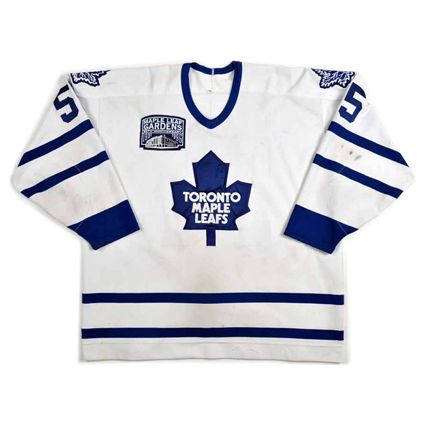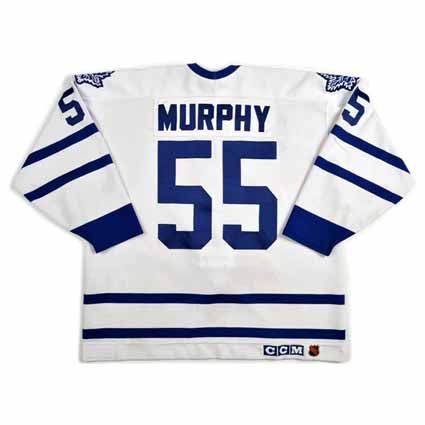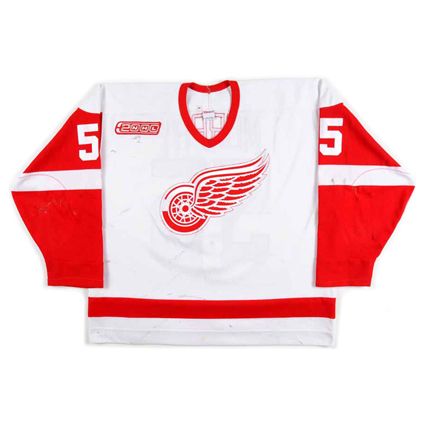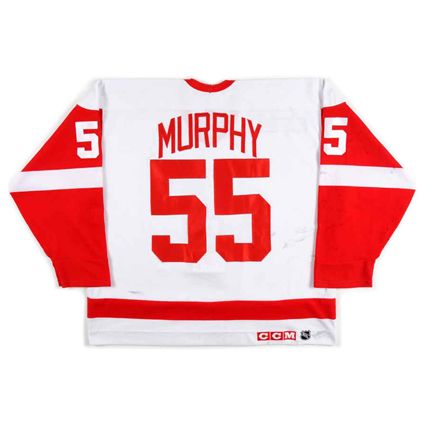He would three more seasons for Khimik, raising his point total to 7 in 1978-79 and 18 in 1979-80 before erupting for 45 points from 22 goals and 23 assists in 43 games in 1980-81. During that span Larionov would also appear for the Soviet Union in a pair of World Junior Championships, twice scoring 6 points in 5 games while earning gold medals in both 1979 and 1980, and then joining the senior national team for the 1981 Canada Cup tournament, which also saw the Soviets come home with the championship title as Larionov contributed 4 goals in 7 contests.
As was regularly the case, when a player began to stand out as an elite talent, he would find himself on the roster of the Central Red Army club, and Larionov was no exception. Identified by coach Viktor Tikhonov as just such a player, he began his career with CSKA Moscow in the fall of 1981. He immediately made his presence known by setting a career high with 31 goals on his way to 53 points in 46 games while centering a line with wingers Vladimir Krutov and Sergei Makarov, the trio striking fear into the hearts of opponents as the KLM Line. Red Army would win the Soviet League championship in 1981, and for the next seven seasons, Larionov and Red Army were an unstoppable force, eventually winning titles during each of Larionov's eight seasons with CSKA.
A personal highlight for Larionov came during the 1987-88 season when he scored 32 assists and 57 points, both personal bests while in the Soviet League. His efforts were recognized when he was named the league's Most Valuable Player.
After joining CSKA in 1981-82, Larionov made his World Championship debut, immediately earning a gold medal thanks in part to his 10 points in 10 games. A second gold followed in 1983, a tournament which saw him rack up 12 points in just 9 games. He also toured North America as part of the 1983 Super Series, which saw the Soviets playing against NHL club teams.
His Olympic debut came in 1984, where Larionov quickly earned a gold medal in his first attempt, followed later in the year by his second Canada Cup. His streak of gold medals was interrupted with a bronze in the 1985 World Championships, but gold soon hung around his neck once again in 1986.
1987 saw a return to North America, has he participated in Rendez-vous '87, the two game series which pitted the Soviet National Team against a squad of NHL All-Stars. Later that spring, he added a silver medal to his collection at the World Championships. Prior to the start of the 1987-88 league schedule, Larionov took part in the third Canada Cup of his career.
After the calendar changed over to 1988, he captured his second Olympic gold medal following a fine effort, which saw him score 13 points in 8 games in Calgary.
Larionov then earned his fourth gold medal at the World Championships in 1989, but despite all the undeniable success he enjoyed in both the domestic league an international competition, all was not well behind the scenes, as Larionov had grown dissatisfied with the authoritarian rule over the players by Tikhonov, which extended into the players personal lives, as they were sometimes confined to barracks for training up to 11 months out of the year.
Finally, after having been drafted by the Vancouver Canucks back in 1985, Larionov was allowed to leave to play in North America for the 1989-90 season.
His North American career would run another 14 seasons and include time spent with not only the Canucks, but the San Jose Sharks, Detroit Red Wings, Florida Panthers and New Jersey Devils. he would even take a year away from the NHL, playing the 1992-93 season with HC Lugano in Switzerland prior to joining the Sharks.
While with Detroit, he enjoyed his greatest NHL success, winning Stanley Cups in 1997, 1998 and 2002, the first of which earned him membership in the exclusive Triple Gold Club for players who have won the World Championships, Olympics and Stanley Cup. He and long time Soviet National teammate Slava Fetisov became on the 7th and 8th members to join the club, which still numbers just 25 players, only six of which are Russians, now 15 years later.
and Larionov, known as "The Russian Five" pose
after winning the 1997 Stanley Cup
With the breakup of the Soviet Union in the early 1990's, Larionov's international career would resume at the inaugural World Cup of Hockey in 1996, only now for the Russia National Team.
With the continuing playoff success of the Canucks, Sharks and especially the Red Wings, Larionov was unavailable for the World Championships each spring, but had one final opportunity to skate on the international stage, that coming in 2002 at the Olympics in Salt Lake City, where he earned a bronze medal as team captain to close out his stellar international career, which included 8 gold medals (4 World Championship, 2 World Juniors and 2 Olympic), 2 silvers (1 World Championship and 1 European Juniors) , 2 bronze (1 World Championship and 1 Olympic) and a Canada Cup.
Larionov was inducted into both the Hockey Hall of Fame and the IIHF Hall of Fame in 2008 in recognition of his stellar career.
Today's featured jersey is a 1984-85 Central Red Army Igor Larionov jersey. Much more striking visually than the spartan Soviet National Team jerseys of the same era, the Red Army jerseys benefit from the addition of the blue shoulders and stripes as well as the red stars on the shoulders and of course the hammer and sickle contained within.
Despite the communist ideals of the Soviet Union and amateur status of it's national team players, Red Army was not above entertaining the the occasional sponsorship from time to time, as seen on the back of this particular sweater!
This beautiful jersey is finished off with Larionov's name on the back in Cyrillic lettering and the very European style #8 with it's multiple layers of outlines and drop shadowing completing the look.
Bonus jersey: Today's bonus jersey is a 1990-91 Vancouver Canucks Igor Larionov jersey as worn during the early days of his NHL career following the domination of the Soviet portion of his career.
The Canucks had retreated from the wild jersey styles they had worn from 1978 to 1989, returning to a more conventional white jersey at home in 1989 in time for Larionov's arrival in Vancouver. They would continue to use this style throughout the 1996-97 season when a change in ownership led to an entirely new look, including not only the team logo but it's colors as well.
Today's video section begins with perhaps Larionov's best known goals, his triple overtime game winner in the 2002 Stanley Cup Finals, his second of the game.
Finally, not a Top 10, but a Top 15 goals scored by Larionov.

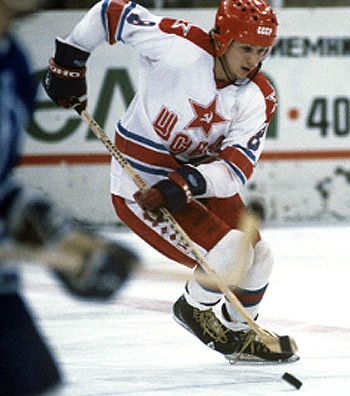
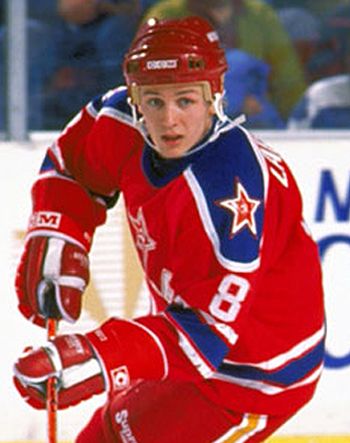
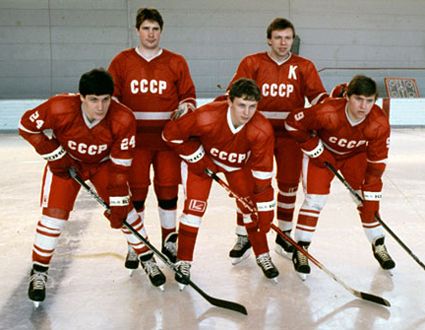
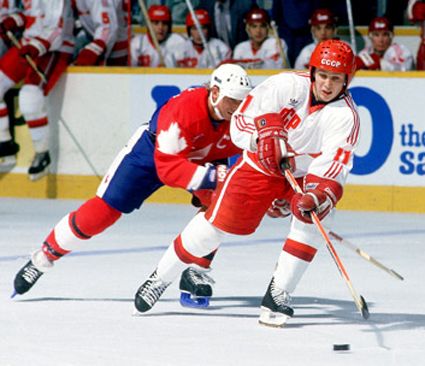
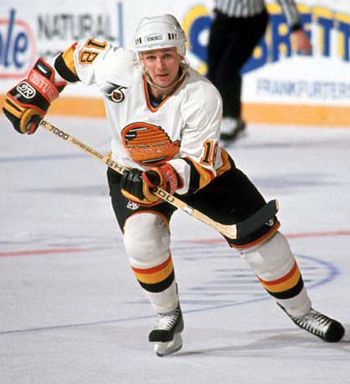
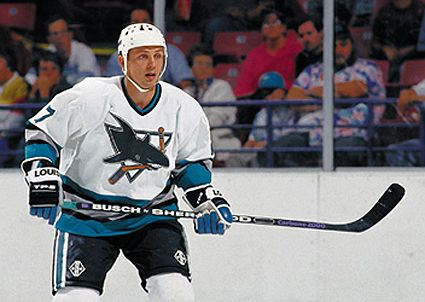
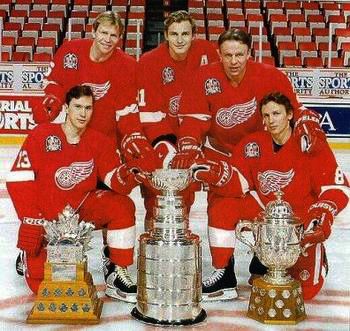
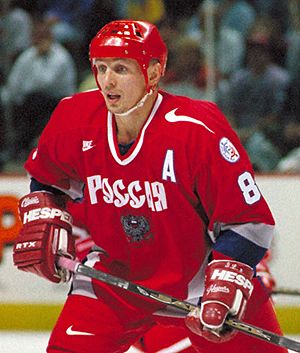
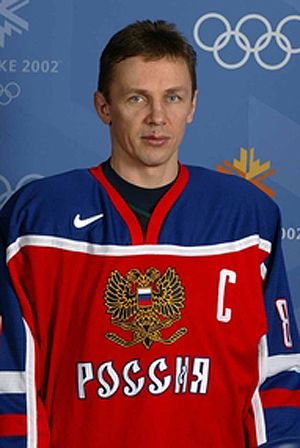
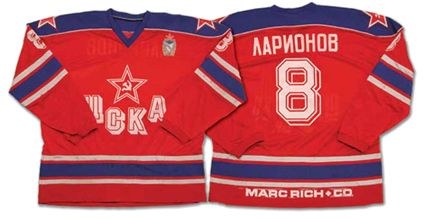
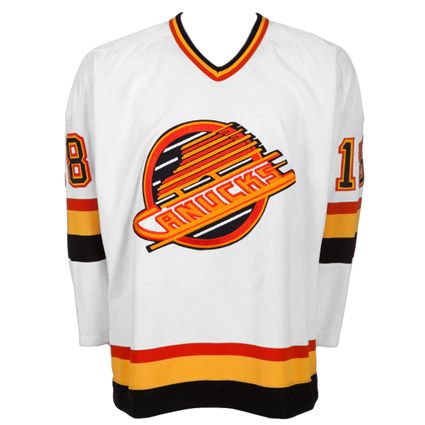
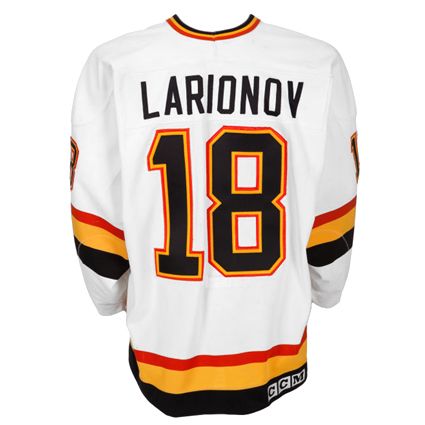
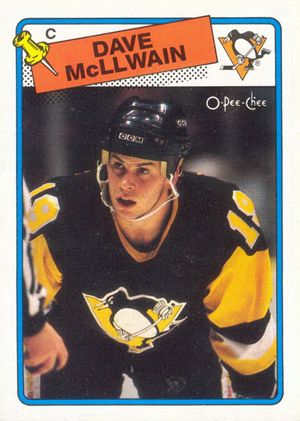
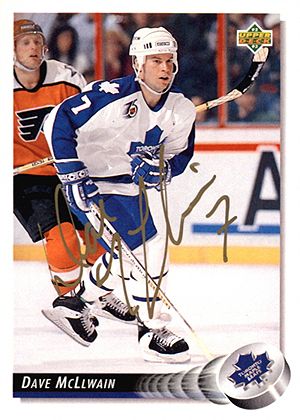
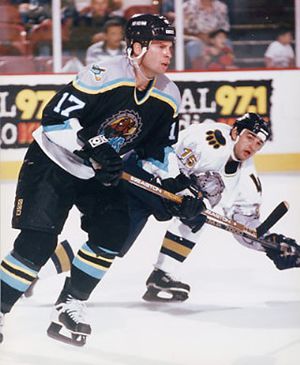
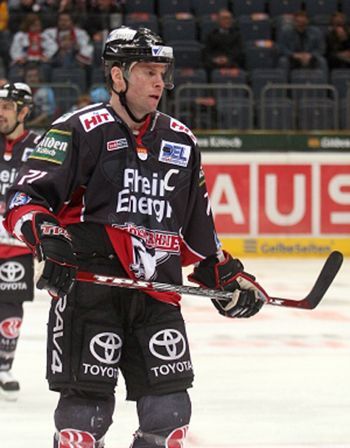
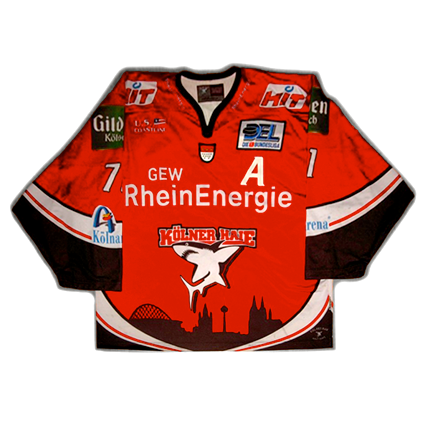
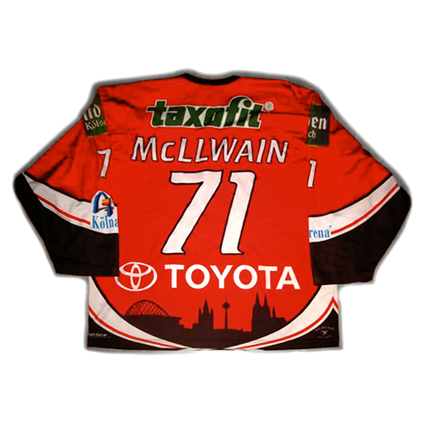
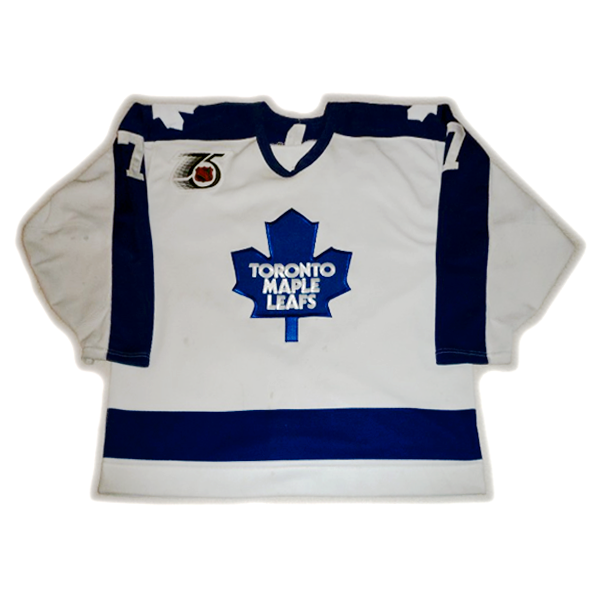
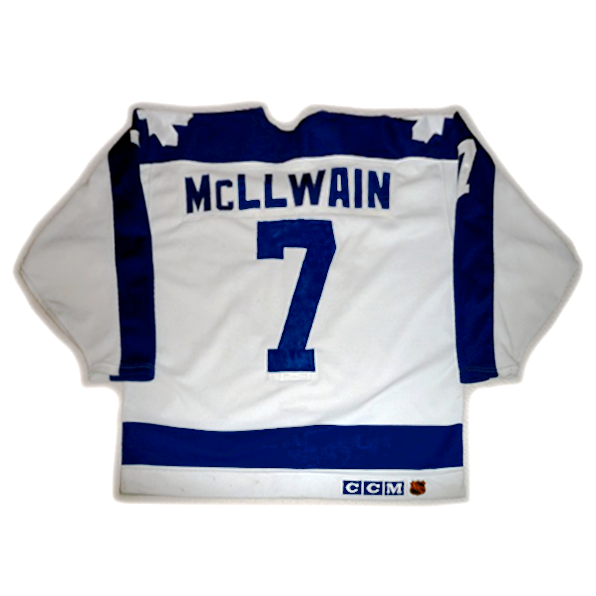
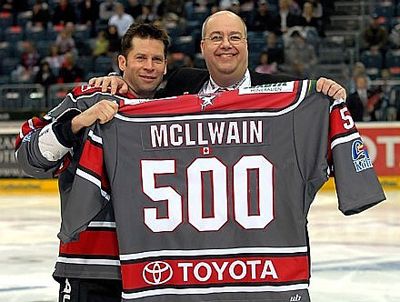
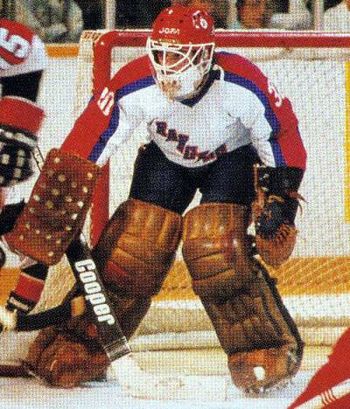
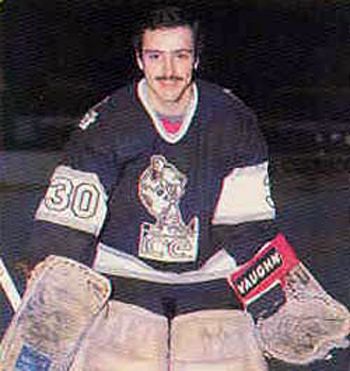
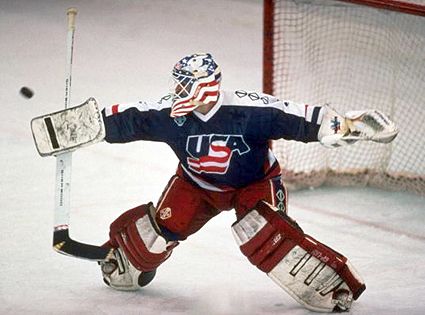
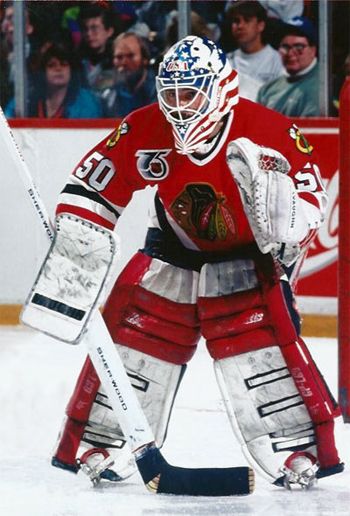
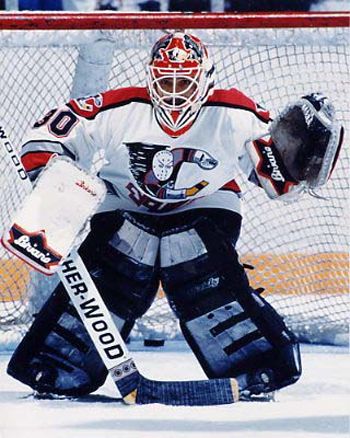
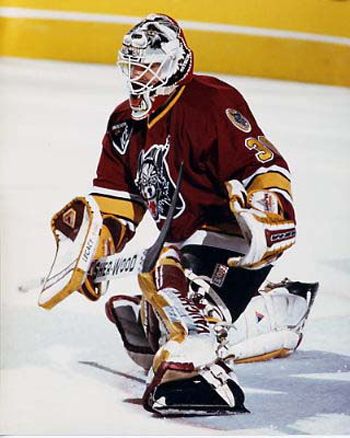
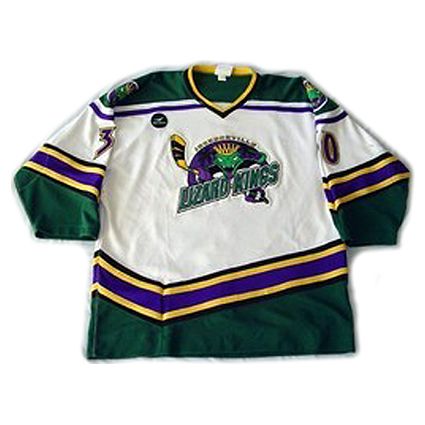
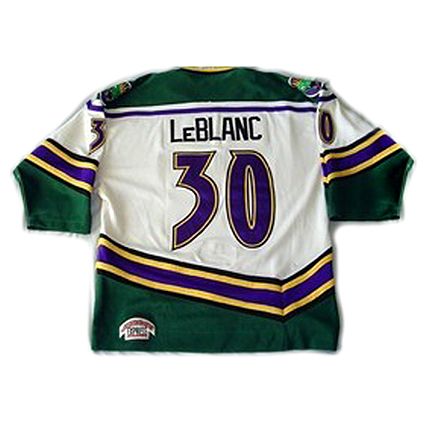
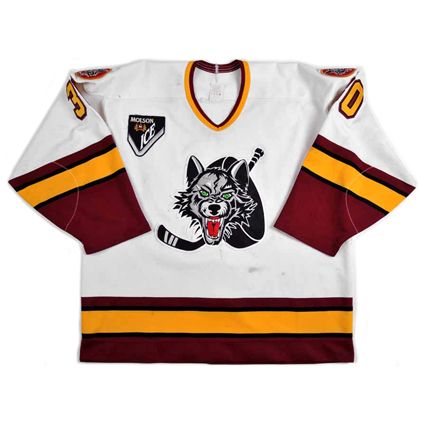
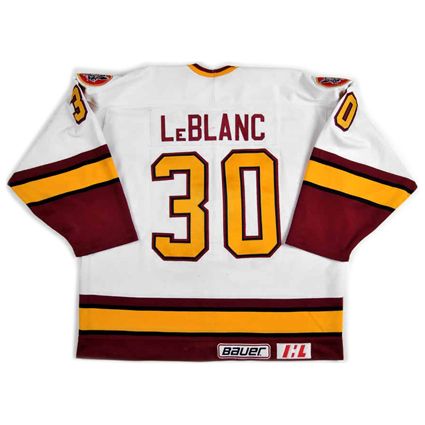
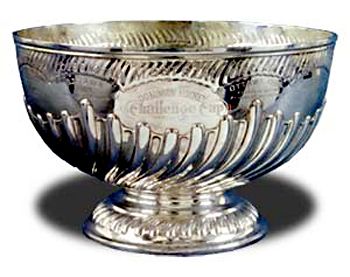
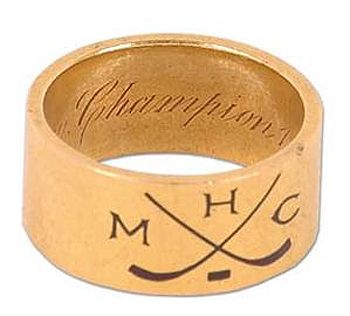
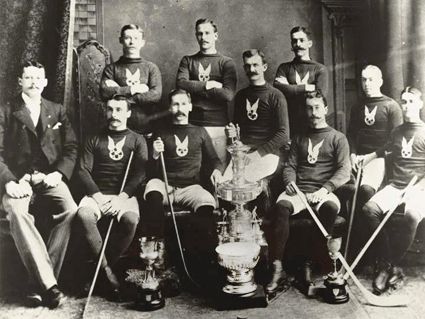
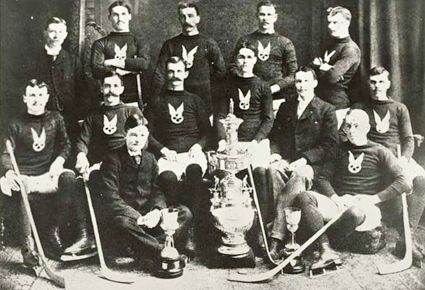
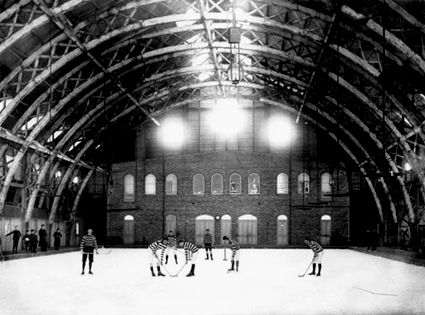
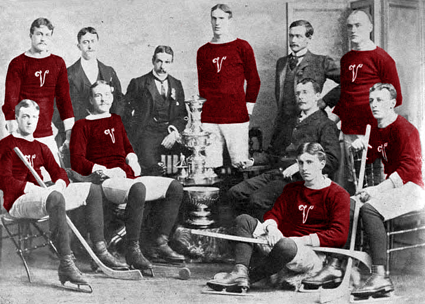
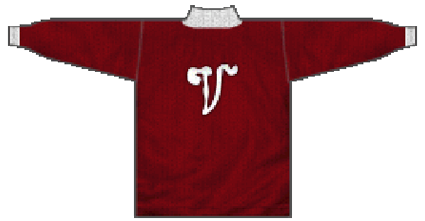
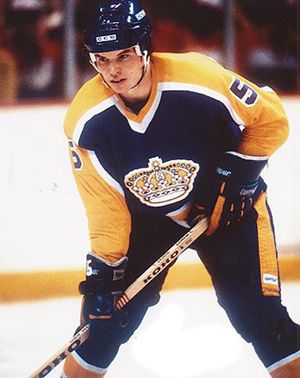
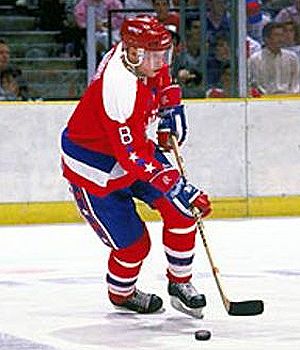
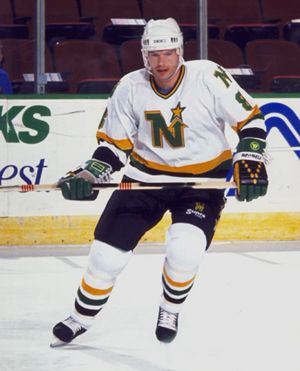
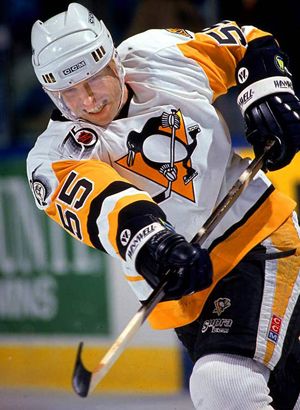 bdx
bdx